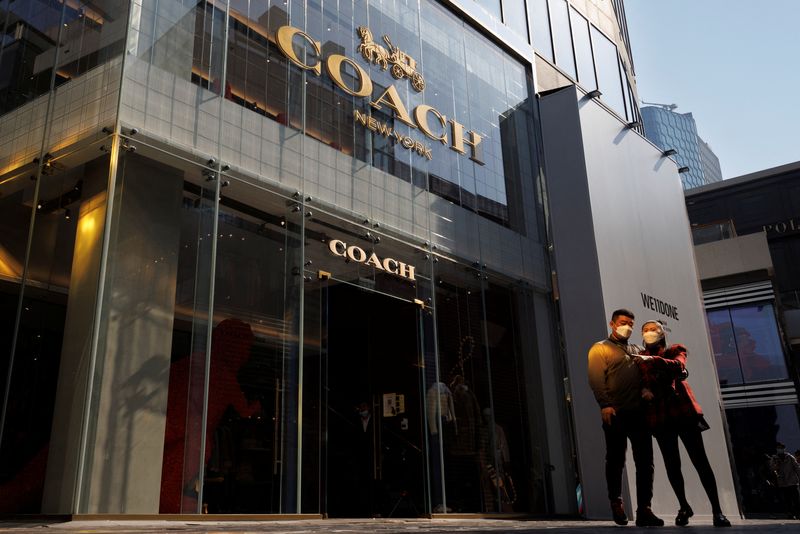US sues to block merger of Coach and Michael Kors handbag makers By Reuters


By Abigail Summerville, Granth Vanaik, Jasper Ward
(Reuters) – The U.S. Federal Trade Commission (FTC) filed a blocking lawsuit on Monday. coach Parent company Tapestry (NYSE:) said its $8.5 billion acquisition of Michael Kors-owner Capri would end “direct head-to-head competition” between the two luxury handbag makers’ flagship brands.
The merger, which would create a company with about 33,000 employees worldwide, could result in lower wages and employee benefits, the FTC said in a statement.
“The proposed merger risks depriving millions of American consumers of the benefits of Tapestry and Capri’s direct competition, including competition on price, discounts and promotions, innovation, design, marketing and advertising,” the FTC said.
The FTC’s rare antitrust case against a luxury fashion merger could set a precedent for regulating luxury trade, several antitrust lawyers said.
Antitrust experts argue that the U.S. luxury market is highly fragmented with many differentiated brands targeting different consumers, and that established fashion brands typically face healthy competition from brands that launch each year.
“The FTC’s decision to litigate is surprising because there is no shortage of competition for fashion, clothing and accessories. The Commission sticks to the marketing term ‘accessible luxury’ and treats it like a unique market that exists in a vacuum.” Howard Hogan is chair of the fashion, retail and consumer practice at law firm Gibson Dunn.
new guidelines
U.S. antitrust enforcers issued new merger guidelines in December to encourage fair, open and competitive markets.
Antitrust lawyers noted that the FTC is using a new tactic under the guidance by arguing that the merger will directly impact hourly workers who may not be able to earn higher wages due to reduced competition for employees.
remove ads
.
“This is a new trend because the revised federal merger guidelines make potential impacts on labor, such as lower wages or working conditions, a basis for challenging mergers,” he said. “It is not surprising that the agency announced that it will do so, but it is a new trend.” “It’s for testing in court.” said Jennifer Lada, a litigation attorney at Holland & Knight.
Tapestry proposed acquiring Capri last August, hoping to create an American fashion giant that could compete effectively with larger European rivals such as Louis Vuitton parent LVMH and gain a larger share of the global luxury market.
But the FTC requested more information about the two companies’ transactions last November.
“Capri Holdings (NYSE:) strongly disagrees with the FTC’s decision,” the company said in a statement. “The market realities that the government’s challenge ignores overwhelmingly show that this deal will not limit, curtail or stifle competition.”
“This is a pro-competitive, consumer-friendly transaction, and there is no question that the FTC fundamentally misunderstands the marketplace and how consumers shop,” Tapestry said in a statement.
In early April, the two companies received regulatory clearance from the European Union and Japan for a deal that would bring together top luxury brands such as Kate Spade and Jimmy Choo under one roof.
Capri’s stock is trading at $37.96, well below the $57 per share that Tapestry is proposing to pay, but most analysts expect the deal to close before the Aug. 10 deadline for the two companies to complete the deal.
“We do not believe consumers will be harmed by the combination, given the competitive nature of the category and its varying levels of cultural relevance,” TD Cowen analysts wrote in a note in early April.
remove ads
.


